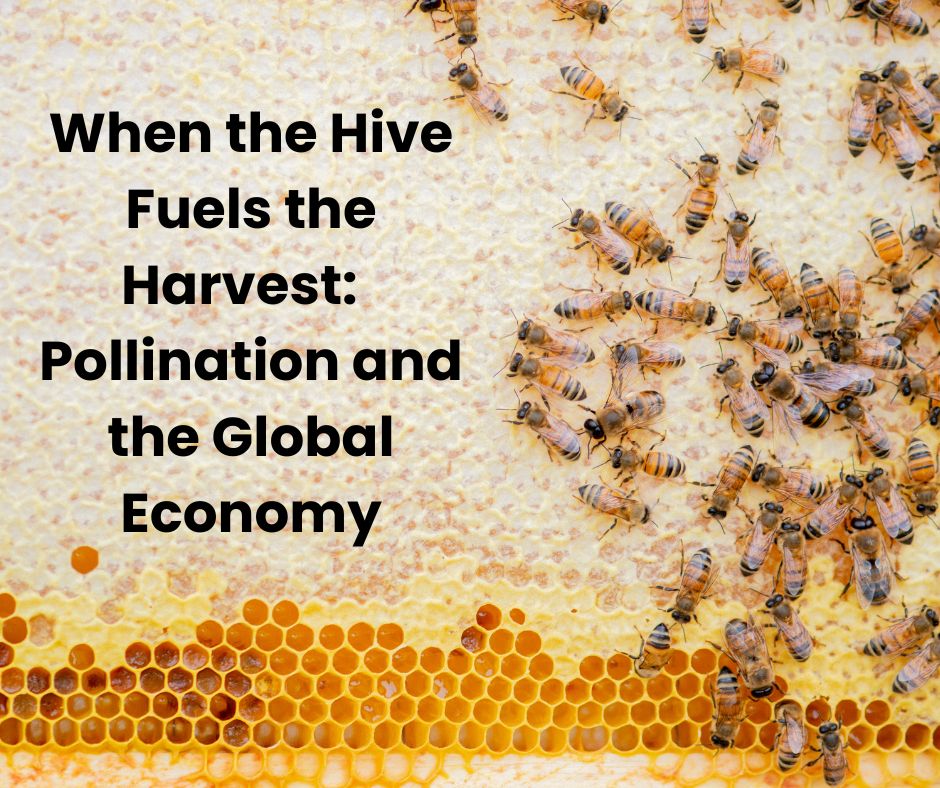When the Hive Fuels the Harvest: Pollination and the Global Economy

Pollinators are far more than the gentle agents of flowers—they are vital engines of the global economy.
By transferring pollen from plant to plant, bees, butterflies, and other pollinating species underpin agricultural productivity and international trade, translating their ecological work directly into billions of dollars in economic value.
Economic Value of Pollinators
Pollination is essential for a wide array of crops, from almonds, apples, and blueberries to coffee, cocoa, cucumbers, melons, squash, and canola.
Without pollinators, crop yields can drop by 20–40%, with serious consequences for both domestic markets and global exports. In effect, pollinators are unsung economic linchpins, ensuring that farms remain productive and economies remain stable.
Pollinators as Trade Enablers
Beyond their local impact, pollinators facilitate global trade. For example, Australia exports live bees to the United States to meet California’s massive almond pollination demand each season.
Healthy hives help stabilise supply chains, prevent shortages, and maintain balanced trade relationships. In many ways, the health of pollinator populations directly reflects the strength of agricultural trade networks worldwide.
Investing in Pollinator Health
Recognising the economic stakes, strategic investments in pollinator health are crucial. Sustainable land management practices, thoughtful pesticide regulation, cross-border biosecurity measures, and ongoing research into colony resilience are not just ecological priorities—they are sound economic choices.
By protecting pollinators, we safeguard both the natural world and the global economy that relies upon it.